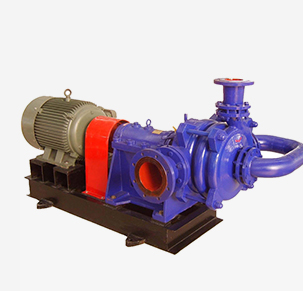Romanian
- Afrikaans
- Albanian
- Amharic
- Arabic
- Armenian
- Azerbaijani
- Basque
- Belarusian
- Bengali
- Bosnian
- Bulgarian
- Catalan
- Cebuano
- Corsican
- Croatian
- Czech
- Danish
- Dutch
- English
- Esperanto
- Estonian
- Finnish
- French
- Frisian
- Galician
- Georgian
- German
- Greek
- Gujarati
- Haitian Creole
- hausa
- hawaiian
- Hebrew
- Hindi
- Miao
- Hungarian
- Icelandic
- igbo
- Indonesian
- irish
- Italian
- Japanese
- Javanese
- Kannada
- kazakh
- Khmer
- Rwandese
- Korean
- Kurdish
- Kyrgyz
- Lao
- Latin
- Latvian
- Lithuanian
- Luxembourgish
- Macedonian
- Malgashi
- Malay
- Malayalam
- Maltese
- Maori
- Marathi
- Mongolian
- Myanmar
- Nepali
- Norwegian
- Norwegian
- Occitan
- Pashto
- Persian
- Polish
- Portuguese
- Punjabi
- Romanian
- Russian
- Samoan
- Scottish Gaelic
- Serbian
- Sesotho
- Shona
- Sindhi
- Sinhala
- Slovak
- Slovenian
- Somali
- Spanish
- Sundanese
- Swahili
- Swedish
- Tagalog
- Tajik
- Tamil
- Tatar
- Telugu
- Thai
- Turkish
- Turkmen
- Ukrainian
- Urdu
- Uighur
- Uzbek
- Vietnamese
- Welsh
- Bantu
- Yiddish
- Yoruba
- Zulu
Telephone: +86 13120555503
Email: frank@cypump.com
sept. . 22, 2024 11:51 Back to list
residential sewage pumps
Understanding Residential Sewage Pumps Essential Components for Home Waste Management
In any household, effective waste management is crucial to ensure a healthy and hygienic living environment. One often overlooked but essential component of any home's plumbing system is the residential sewage pump. These pumps play a key role in transporting wastewater from homes to larger sewer systems or septic tanks, particularly in areas where gravity drainage is not feasible.
What is a Residential Sewage Pump?
A residential sewage pump is a type of pump specifically designed to handle wastewater, including human waste, toilet paper, and other materials that are typically not suitable for traditional plumbing systems. Unlike a sump pump, which is used to remove excess water from basements and crawl spaces, sewage pumps are designed to handle the more challenging task of dealing with solids in wastewater.
How Does a Sewage Pump Work?
Sewage pumps operate by using a motor-driven impeller to create a flow that pushes wastewater through pipes to an appropriate disposal site. When wastewater enters the pump's basin, the float switch activates the pump when the water level rises to a predetermined point. The pump then transports the wastewater through discharge piping to the sewer line or septic system, overcoming the force of gravity as needed.
Key Benefits of Sewage Pumps
1. Prevention of Backups One of the primary benefits of having a sewage pump is its ability to prevent sewage backups in the home. This is particularly important in basements where gravity drainage may not be possible. A sewage pump ensures that wastewater is expelled efficiently, reducing the risk of clogs and backups.
2. Improved Hygiene By facilitating the proper disposal of wastewater, sewage pumps contribute to better hygiene and sanitation in homes. This is crucial for protecting the health of residents and maintaining a clean living environment.
residential sewage pumps

3. Flexibility in Waste Management Sewage pumps provide homeowners with greater flexibility in plumbing installations. For example, if a bathroom or laundry room is added to a space that is below the main sewage line, a sewage pump can make it possible to connect these areas without extensive renovations.
4. Durability and Longevity Modern sewage pumps are built to withstand harsh conditions and are designed for longevity. With proper care and maintenance, a residential sewage pump can serve its function effectively for many years.
Considerations When Choosing a Sewage Pump
When selecting a sewage pump, several factors should be considered. Homeowners should assess the capacity needed based on the volume of wastewater produced and the distance the pump must discharge the waste. Additionally, pump noise level and energy efficiency are important factors that can impact overall satisfaction with the pump’s performance.
Maintenance of Sewage Pumps
Routine maintenance is crucial for ensuring sewage pumps operate correctly over time. Homeowners should regularly check the floats and clean the pump's inlet and outlet to prevent blockages. Consideration should also be given to professional inspections to check for any potential issues.
Conclusion
In conclusion, residential sewage pumps are vital components of home waste management systems. They provide essential services that ensure hygiene, prevent backups, and offer flexibility in plumbing configurations. By understanding how sewage pumps function and the importance of regular maintenance, homeowners can maintain a healthy and sanitary environment in their residences. Whether you're planning a new construction or dealing with an existing system, evaluating your sewage pumping needs is an essential step toward effective waste management in your home.
-
High-Performance Air Pumps for Sand & Gravel | Efficient Transport
NewsAug.03,2025
-
ISG Series Vertical Pipeline Pump - Chi Yuan Pumps Co., LTD.|Energy Efficiency, Corrosion Resistance
NewsAug.03,2025
-
ISG Series Pipeline Pump - Chi Yuan Pumps | Energy Efficiency&Compact Design
NewsAug.03,2025
-
ISG Series Vertical Pipeline Pump - Chi Yuan Pumps Co., LTD.|High Efficiency, Low Noise, Durable
NewsAug.02,2025
-
ISG Series Vertical Pipeline Pump - Chi Yuan Pumps | High Efficiency, Low Noise
NewsAug.02,2025
-
ISG Series Vertical Pipeline Pump- Chi Yuan Pumps Co., LTD.|High Efficiency&Compact Design
NewsAug.02,2025










